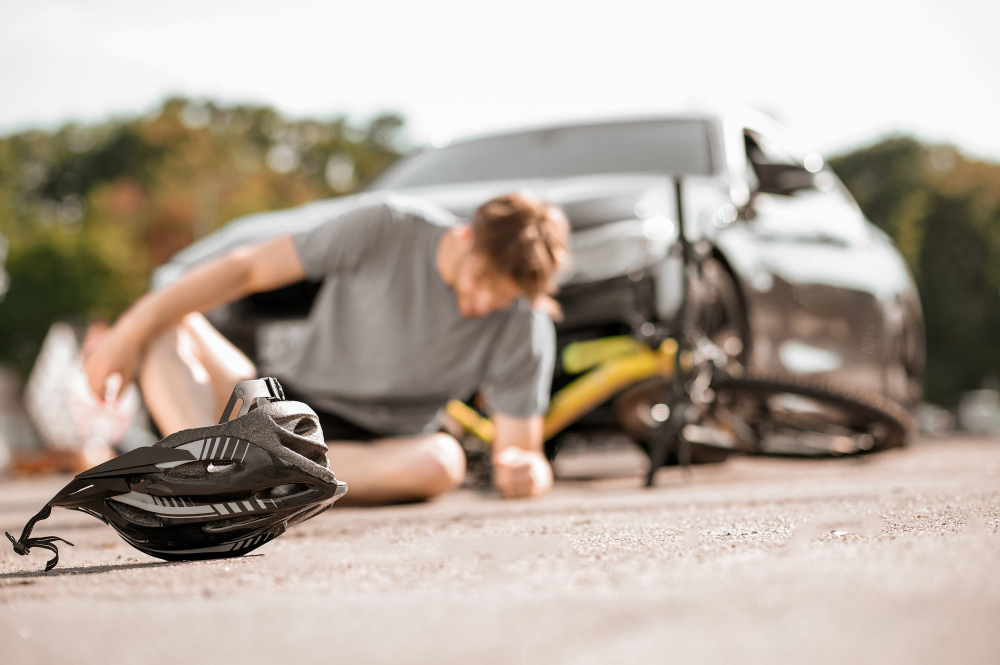A hit-and-run offense occurs when a driver leaves the scene of an accident without providing necessary information or assistance. In Illinois, this is a serious legal violation that can lead to steep penalties, including fines, jail time, and a suspended license. Understanding these laws is critical, whether you’re a driver, victim, or witness, to ensure safety and legal compliance.
Here we will explains Illinois-specific laws about hit-and-run offenses, their penalties, and what you should do if you’re involved in such an incident. It aims to educate readers about their rights, responsibilities, and options in these situations.
What is a Hit and Run Offense in Illinois?
Under Illinois law, a hit-and-run offense happens when a driver involved in an accident fails to stop, provide their personal and insurance details, or help injured parties. This applies to collisions involving other vehicles, pedestrians, or property.
Common scenarios include a driver hitting a parked car and leaving without leaving contact information, or fleeing after causing an injury. Even minor accidents are legally required to be reported if damage occurs. Understanding these scenarios helps drivers avoid unintentional violations.
Penalties for Hit and Run Offenses in Illinois
Penalties for hit-and-run offenses in Illinois vary based on the severity of the incident. Minor accidents may result in misdemeanor charges, while accidents involving injuries or fatalities often lead to felony charges.
For misdemeanors, penalties can include fines up to $2,500, jail time up to one year, and a driver’s license suspension. Felony charges, however, can carry fines of $25,000, several years in prison, and permanent driving record implications. The penalties underscore the importance of staying at the scene and following the law.
How to Report a Hit and Run in Illinois
If you’re a victim or witness of a hit-and-run, promptly reporting the incident is essential. First, gather as much information as possible, such as the fleeing vehicle’s license plate, make, model, and color. Next, contact law enforcement and file a report with all the details you’ve collected.
Victims should also notify their insurance company and provide the police report. Reporting a hit-and-run promptly can increase the chances of identifying the offender and resolving the case.

What to Do If You’re Accused of a Hit and Run
Being accused of a hit-and-run can be overwhelming, but taking the right steps is crucial. Avoid admitting fault or making statements without consulting an attorney. Your first action should be to contact a lawyer experienced in traffic laws.
An attorney can help protect your legal rights, guide you on the appropriate course of action, and represent you if charges are filed. Acting quickly is essential to minimize potential legal consequences.
Legal Defenses for Hit and Run Cases in Illinois
Several legal defenses can be used in hit-and-run cases. For example, a defendant may argue they were unaware an accident occurred, especially in minor incidents. Alternatively, they might claim they left the scene to seek immediate medical help.
Evidence such as video footage, witness statements, or proof of vehicle damage can significantly impact the case’s outcome. A skilled attorney can evaluate the details and build a strong defense strategy.
Victim Support: Recovering from a Hit and Run Incident
Victims of hit-and-run accidents can recover damages through their insurance or by seeking legal action. Uninsured motorist coverage often helps victims receive compensation for property damage and medical expenses.
Consulting with a personal injury attorney can clarify your legal options. They can assist in filing claims or lawsuits to recover financial losses caused by the incident.
Preventing Hit and Run Offenses in Illinois
Prevention begins with responsible driving habits. Always stay at the scene of an accident, even if it seems minor. Check on others involved, share contact information, and report the incident to authorities if required.
Education about traffic laws and the consequences of leaving an accident scene can deter hit-and-run offenses. Safe driving practices and awareness of your legal obligations can protect you and others on the road.
Conclusion
Hit-and-run offenses in Illinois carry significant legal and financial consequences, emphasizing the importance of understanding the laws. Whether you’re a victim, accused, or witness, knowing your rights and responsibilities is essential for navigating these situations.
If you’re involved in a hit-and-run incident, seek legal advice immediately to ensure proper handling of your case. Following Illinois traffic laws can help keep you and others safe while avoiding serious penalties.
Interesting Reads:






